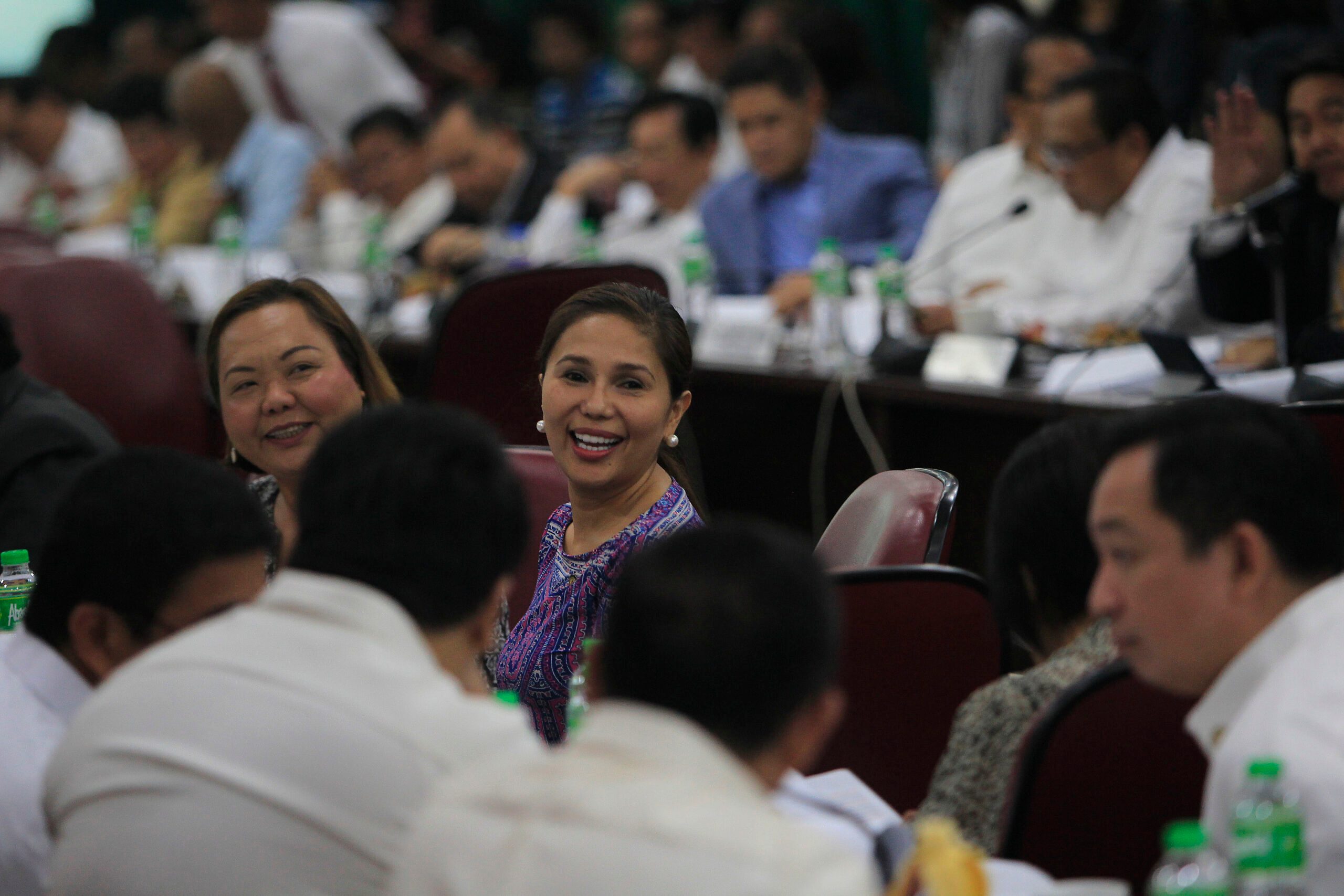SUMMARY
This is AI generated summarization, which may have errors. For context, always refer to the full article.

MANILA, Philippines (UPDATED) – The House of Representatives ad hoc committee on the proposed Bangamoro Basic Law (BBL) on Tuesday, May 19, approved key amendments that would protect indigenous peoples’ rights in the Bangsamoro autonomous region.
Voting 22-8, committee members voted to adopt the proposed amendment in Article VII, Section 5 of the draft BBL, which recognizes the validity of the Indigenous Peoples’ Rights Act (IPRA) in the Bangsamoro.
This is a “big win” for indigenous peoples in the Bangsamoro, said North Cotabato 2nd district Representative Nancy Catamco, the lead House proponent for the inclusion of IP rights in the BBL.
Article IX (Basic Rights) Section 5 on non-Moro Indigenous People’s Rights of the BBL now reads:
The Bangsamoro Government recognizes the rights of the Non-Moro indigenous peoples, and shall adopt measures for the promotion and protection of their rights, the right to their native titles and/or fusaka inged, indigenous customs and traditions, justice systems and indigenous political structures, the right to an equitable share in revenues from the utilization of resources in their ancestral lands, the right to free and prior informed consent, right to political participation in the Bangsamoro Government including reserved seats for the Non-Moro indigenous peoples in the Bangsamoro Parliament, the right to basic services and the right to freedom of choice as to their identity in accordance with the Indigenous Peoples’ Rights Act, the United Nations Declaration of the Rghts of Indigenous Peoples and the United Nations Declaration on Human Rights.
The IPRA is a landmark law that recognizes ancestral domains and paves the way for the issuance of native titles. (Rappler Talk: Are the Lumad victims in war and peace?)
The committee also voted 32-11 to move the responsibility for the protection of the rights of indigenous peoples or Lumad from the exclusive powers of the Bangsamoro autonomous region to concurrent powers or shared powers between the Bangsamoro and the national government.
This means that the IPRA, a national law, would now be respected in the BBL, said Akbayan Representative Barry Gutierrez. “(The amendment) expands the power of the national government over the regional government on IP rights, as opposed to the original proposal where the jurisdiction over indigenous people’s rights was left solely to the Bangsamoro,” Gutierrez added.
However, the committee rejected amendments proposed by North Cotabato Representative Nancy Catamco, which sought to give non-Moro IPs primary rights and responsibility over natural resources in their ancestral lands.
Although the IPRA was passed in 1997, it was never implemented in the Autonomous Region in Muslim Mindanao, which the Bangsamoro autonomous region seeks to replace, due to the lack of an enabling regional law.
The latest BBL draft was produced after a meeting between House leaders and President Benigno Aquino III in Malacañang.
Other key changes that were approved during Tuesday’s vote include:
- Deleting the enumeration of different non-Moro indigenous peoples groups in Article VII, Section 7 that can qualify for reserved seats in the Bangsamoro Parliament. Zamboanga Representative Celso Lobregat said specifying the groups would discriminate against other groups not mentioned in the bill.
- The proposal of Bayan Muna Representative Carlos Isagani Zarate to retain the Bangsamoro government’s jurisdiction over Bangsamoro settlements
- Instead of one deputy chief minister, two deputy chief minsiters from Southwestern Mindanao and Central Mindanao will be appointed
- Deleting the position for a Wali or titular head that would have ceremonial functions
A product of the peace deal between the government and rebel group Moro Islamic Liberation Front (MILF), the BBL seeks to create a new autonomous region in Muslim Mindanao with greater powers and resources than the current one in place.
The proposed Bangsamoro autonomous region is designed to be parliamentary in form, enjoying automatic appopriations similar to the internal revenue allotment of local government units.
The legislative process for the BBL marks the 2nd stage of the peace process, which would require the passage of the proposed law in Congress and through a plebiscite in identified areas. – Rappler.com
Add a comment
How does this make you feel?
There are no comments yet. Add your comment to start the conversation.